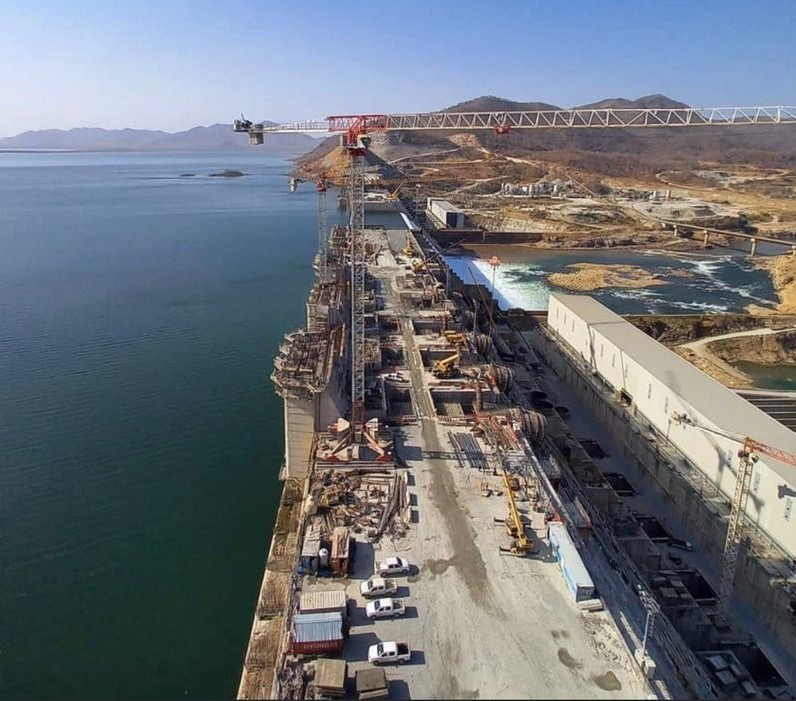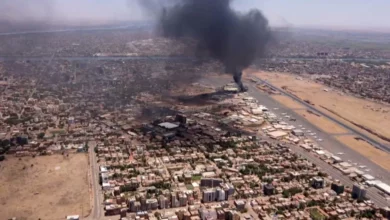
Ethiopian Prime Minister Abiy Ahmed announced Sunday that the second filling of the Grand Ethiopian Renaissance Dam (GERD) will proceed as planned for July/August.
“Ethiopia, in developing Abbay (Blue Nile) River for its needs, has no intention of causing harm to lower riparian countries. Heavy rains last year enabled successful first filling of the GERD while the presence of the GERD itself has undoubtedly prevented severe flooding in neighboring Sudan,” Ahmed wrote in a post on twitter.
“Ahead of the second filling, Ethiopia is releasing more water from last year’s storage through newly completed outlets & sharing information. The next filling takes place only during heavy rainfall months of July/August, ensuring benefits in reducing floods in Sudan.”
The Ethiopian Ministry of Foreign Affairs also informed Washington of its commitment to African sponsorship of the GERD negotiations.
Ethiopian Foreign Minister Demeke Mekonnen, said during a phone call with the US National Security Adviser, Jake Sullivan, that “the Renaissance Dam negotiations under the auspices of the AU are necessary, given that it is an impartial and fair observer.
Egypt announced earlier this month that the latest round of GERD negotiations held in Kinshasa, the capital of Democratic Republic of Congo on April 4-5 did not achieve any progress nor did it lead to an agreement on re-launching the negotiations.
The Egyptian Foreign Ministry said that Ethiopia rejected the proposal submitted by Sudan and supported by Egypt to form an international quartet led by Congo, which heads the African Union, to mediate between the three countries.
Ethiopia also rejected all other proposals and alternatives put forward by Egypt and Sudan in order to develop the negotiation process to enable the countries and parties participating in the negotiations as observers to actively engage in the discussions, participate in the conduct of the negotiations, and propose solutions to the controversial technical and legal issues.
The latest sessions for negotiations in January have also been fruitless.
Egypt on January 10 said that the recent sessions of GERD negotiations have failed once again due to differences on how to resume talks and of the procedural aspects related to managing the negotiation process.
Egypt and Sudan say they want a legally binding agreement on filling and operating the GERD, while Ethiopia is trying to evade a binding agreement.
The three parties have held several rounds of negotiations over the past decade, but have ultimately failed to reach an agreement.
The construction of the dam, which began in 2011, is considered to be one of Egypt’s most serious water issues.
Egypt, which relies considerably on freshwater from the Nile, has voiced fears that the GERD would negatively impact the country’s water supply, and has insisted that measures be put in place to protect downstream countries in case of drought during the dam’s filling process.
Ethiopia, on the other hand, has stressed the importance of the project to bolster its economy, where more than half of the population currently lives without access to electricity.




